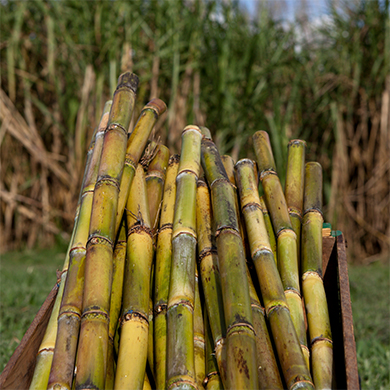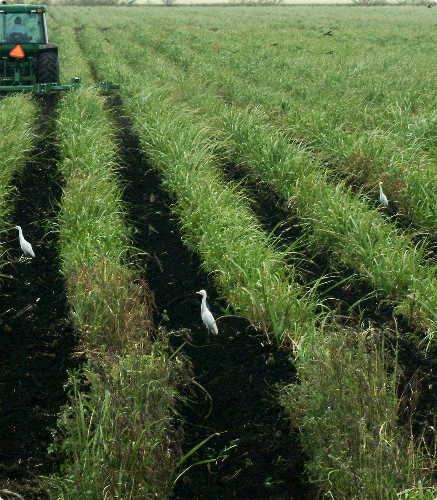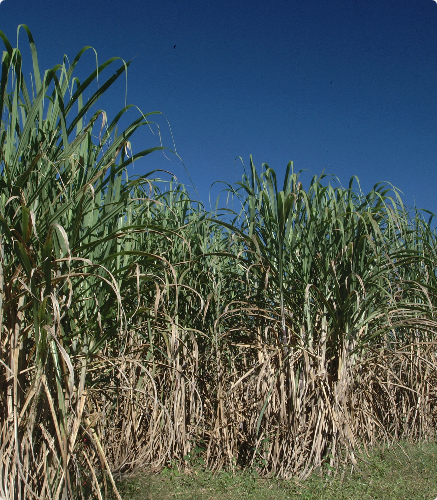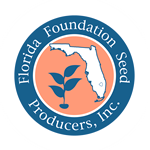Sugarcane has been vital to Florida since 1572, when it was first grown by the Spanish founders of St. Augustine. Today, the state produces about 400,000 acres annually with an estimated farm-gate value of $750 million. This crop has become increasingly important in recent years for its bioenergy production potential. High-biomass grasses such as energy cane, napier grass, and sorghum promise to become primary feedstock for Florida’s emerging biofuels industry.
Energy cane produces biomass with elevated fiber and reduced sucrose content. Napier grass is a major livestock feed because of its excellent forage quality and tolerance of multiple annual harvests. These two grasses are the most productive perennial biomass grasses on marginal land in the coastal southeastern U.S. and are considered dedicated feedstocks for production of lignocellulosic biofuel. Sweet sorghums and high-biomass sorghums are annual bioenergy crops with exceptional drought tolerance.






